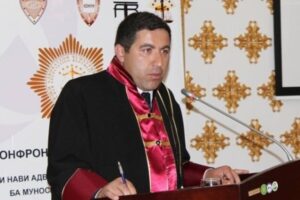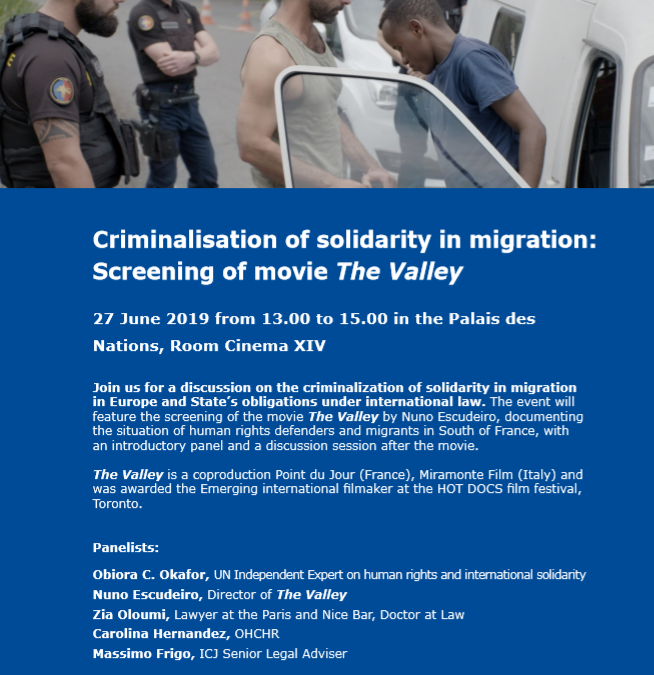
Jun 24, 2019 | Events, News
The OHCHR, ICJ and the Geneva Bar Association invite you to a discussion on the criminalization of solidarity in migration in Europe and State’s obligations under international law.
Thursday, 27 June, 13h00,
UN Cinema (Room XIV),
Palais des Nations, Geneva
The event will feature the screening of the movie “The Valley” by Nuno Escudeiro, documenting the situation of human rights defenders and migrants in South of France, with an introductory panel and a discussion session after the movie.
The Valley is a coproduction of Point du Jour (France) and Miramonte Film (Italy), and was awarded the Emerging international filmmaker at the HOT DOCS film festival, Toronto.
Panelists:
- Obiora C. Okafor, UN Independent Expert on human rights and international solidarity
- Nuno Escudeiro, Director of The Valley
- Zia Oloumi, Lawyer at the Paris and Nice Bar, Doctor at Law
- Carolina Hernandez, OHCHR
- Massimo Frigo, ICJ Senior Legal Adviser
If you do not already have a grounds pass to access the Palais des Nations, please send your name and surname at migration@ohchr.org before the end of Sunday 23 June.
For more information contact massimo.frigo(a)icj.org
A flyer for the event is avaiable here.
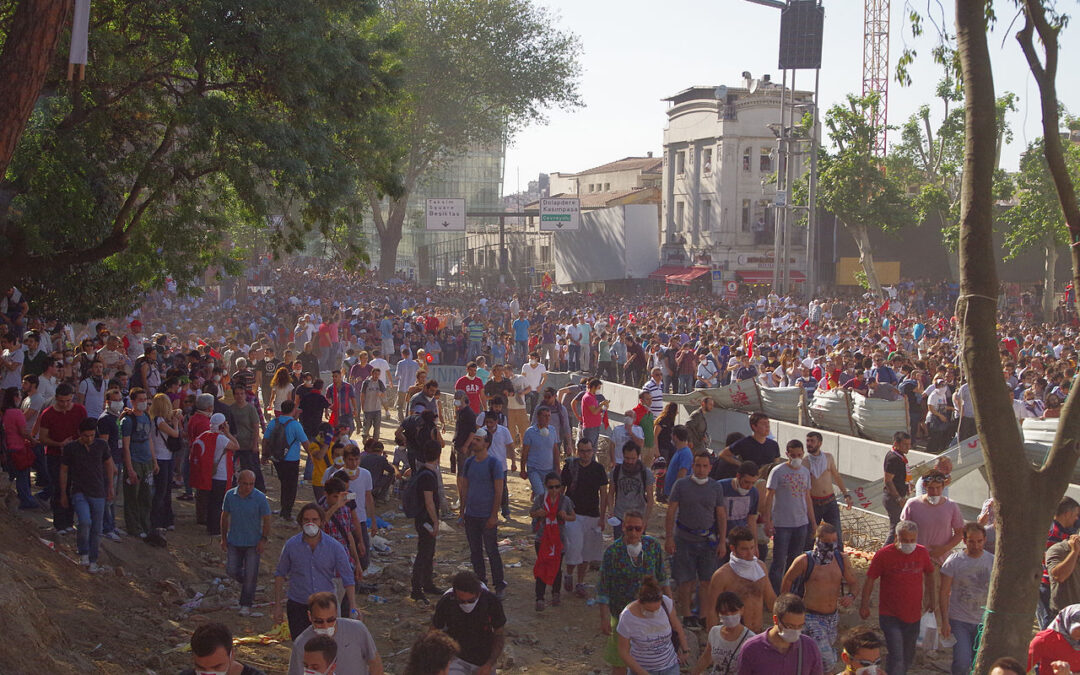
Jun 24, 2019 | News
The ICJ and the International Bar Association’s Human Rights Institute (IBAHRI) have jointly sent international observers to attend the first hearing of the criminal trial on the “Gezi Park” protest at the Silivri Prison Courthouse in Istanbul, scheduled to take place on 24 and 25 June 2019.
The International Observers who will be attending are Justice Ketil Lund, former judge of the Supreme Court of Norway and ICJ Commissioner, and Dr Mark Ellis, Executive Director of the International Bar Association.
Justice Lund and Dr Ellis will be observing a trial hearing before İstanbul 30th Assize Court with principal defendant Osman Kavala and 15 others: Ali Hakan Altınay, Ayşe Mücella Yapıcı, Ayşe Pınar Alabora, Can Dündar, Çiğdem Mater Utku, Gökçe Yılmaz, Handan Meltem Arıkan, Hanzade Hikmet Germiyanoğlu, İnanç Ekmekci, Memet Ali Alabora, Mine Özerden, Şerafettin Can Atalay, Tayfun Kahraman, Yiğit Aksakoğlu and Yiğit Ali Ekmekçi.
The observers will report directly to the IBAHRI and ICJ Secretariats on the proceedings following the mission.
The Gezi Park protests began in May 2013 as an effort by a group of environmentalists to save a park in central Istanbul from being rezoned, but soon turned into nationwide demonstrations. The protest was quelled by police with the use of tear gas and water cannons against the protesters in Taksim Square.
Following a six-year investigation into the events, the 657-page indictment issued by the Istanbul Chief Public Prosecutor’s Office was accepted by the 30th A Court in Istanbul on 4 March 2019.
The defendants are to be charged under Turkish Criminal Code Article 312 (attempt to overthrow the Turkish Government or attempt to prevent it from fulfilling its duties), Article 151 (damage to property), Article 152 (qualified damage to property), Article 174 (possession or exchange of hazardous substances without permission), Article 153 (damaging places of worship and cemeteries), Article 149 (qualified robbery), Article 86 (intentional injury); crimes under the Law on Firearms, Knives and Other Tools no. 6136, and crimes under the Law on Protection of Cultural and Natural Assets no. 2863. The total sentence asked for by the prosecution for these offences amounts to approximately 47,520 years imprisonment.
Contact:
Massimo Frigo, Senior Legal Adviser, t: +41 22 979 38 05 – e: massimo.frigo(a)icj.org
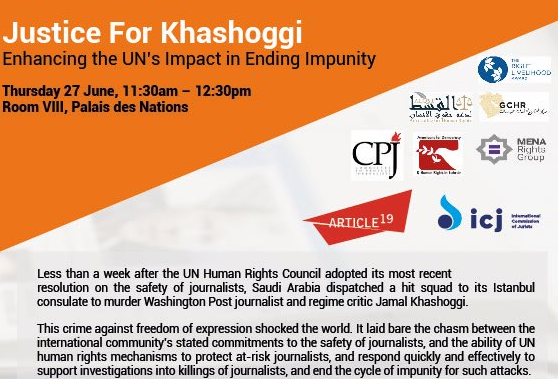
Jun 23, 2019 | Events, News
The ICJ joins other NGOs and UN experts in presenting a side event to the UN Human Rights Council, Thursday 27 June, 11:30am – 12:30pm, in Room VIII, Palais des Nations
Less than a week after the UN Human Rights Council adopted its most recent resolution on the safety of journalists, Saudi Arabia dispatched a hit squad to its Istanbul consulate to murder Washington Post journalist and regime critic Jamal Khashoggi.
This crime against freedom of expression shocked the world. It laid bare the chasm between the international community’s stated commitments to the safety of journalists, and the ability of UN human rights mechanisms to protect at-risk journalists, and respond quickly and effectively to support investigations into killings of journalists, and end the cycle of impunity for such attacks.
This human rights crisis is not limited to autocratic countries or nascent democracies – after several years in decline, the number of killings of journalists worldwide spiked in 2018, whilst impunity for historic cases remains troublingly high, fueling further violence. In Malta, a report by PACE Special Rapporteur Pieter Omtzigt into the killing of Daphne Caruana Galizia more than 18 months ago, highlighted serious concerns over national investigations, pointing to systemic rule of law failings in the country.
As the UN Special Rapporteur on extrajudicial, arbitrary or summary executions, Dr. Agnès Callamard, presents the findings of her independent investigation into the killing of Jamal Khashoggi to the 41st Session of the UN Human Rights Council, join us to discuss what recent attacks on journalists have taught us about gaps in prevention, protection and prosecution, and how to enhance the UN’s response to impunity.
| Panelists |
Dr. Agnès Callamard |
UN Special Rapporteur on extrajudicial, summary or arbitrary executions |
|
David Kaye |
UN Special Rapporteur on freedom of opinion and expression |
|
Hatice Cengiz |
Fiancée of Jamal Khashoggi |
|
Pieter Omtzigt |
Special Rapporteur, Council of Europe |
|
Rob Mahoney |
Deputy Executive Director, Committee to Protect Journalists |
|
Yahya Assiri |
Founder and Director, ALQST |
| Moderator |
Thomas Hughes |
Executive Director, ARTICLE 19 |
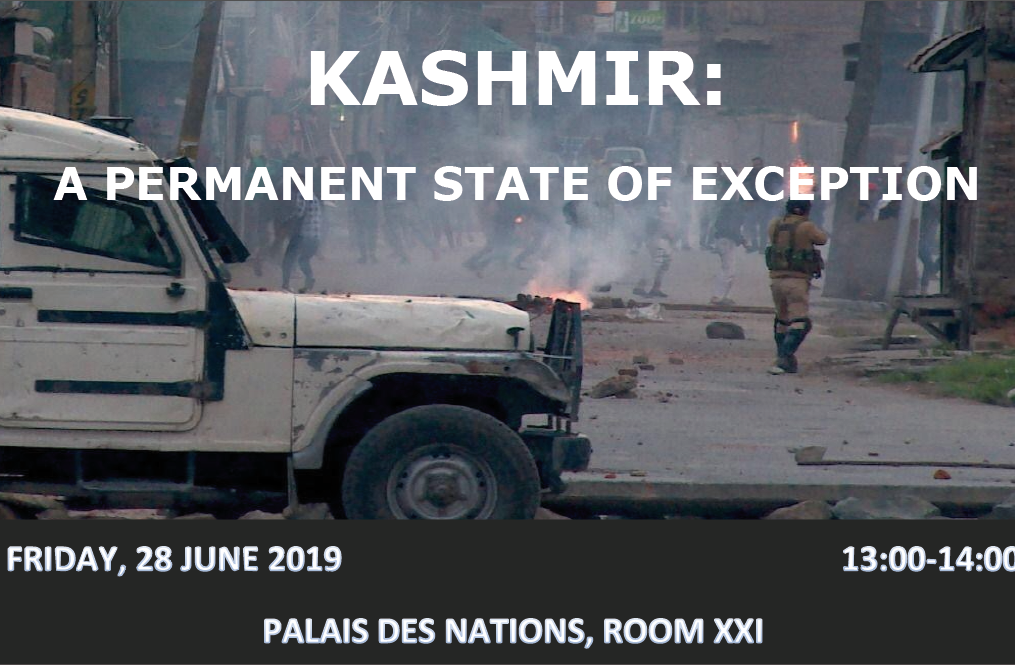
Jun 23, 2019 | Events, News
This side event will take place on Friday 28 June 2019, from 13:00-14:00, in Room XXI, at the Palais des Nations.
There has been an increase in serious human rights violations in Kashmir, particularly since 2016. This has coincided with shrinking space for human rights reporting and advocacy at the national level, with human rights defenders facing unprecedented threats and reprisals.
The escalating violence, coupled with systemic impunity for perpetrators, has made it imperative for the human rights situation in Kashmir to be highlighted at the international level, including at the UN.
This event aims to bring to the forefront the human rights aspect of the conflict and discuss possible strategies through which the international community can play a more effective role in ensuring the promotion and protection of human rights in the region.
Keynote Address
Hon. Judge Navanethem Pillay: Former UN High Commissioner for Human Rights (2008-2014)
Moderator
Sam Zarifi: ICJ Secretary General
Speakers
Juliette Rousselot: Program Officer for South Asia, International Federation for Human Rights (FIDH)
Gerard Staberock: Secretary General, World Organization Against Torture (OMCT)
Dr. Angana Chatterji: Co-chair, Initiative on Political Conflict, Gender and People’s Rights, Center for Race and Gender, University of California, Berkeley
Kashmir-HRC-Event-2019-ENG (Flyer in PDF)
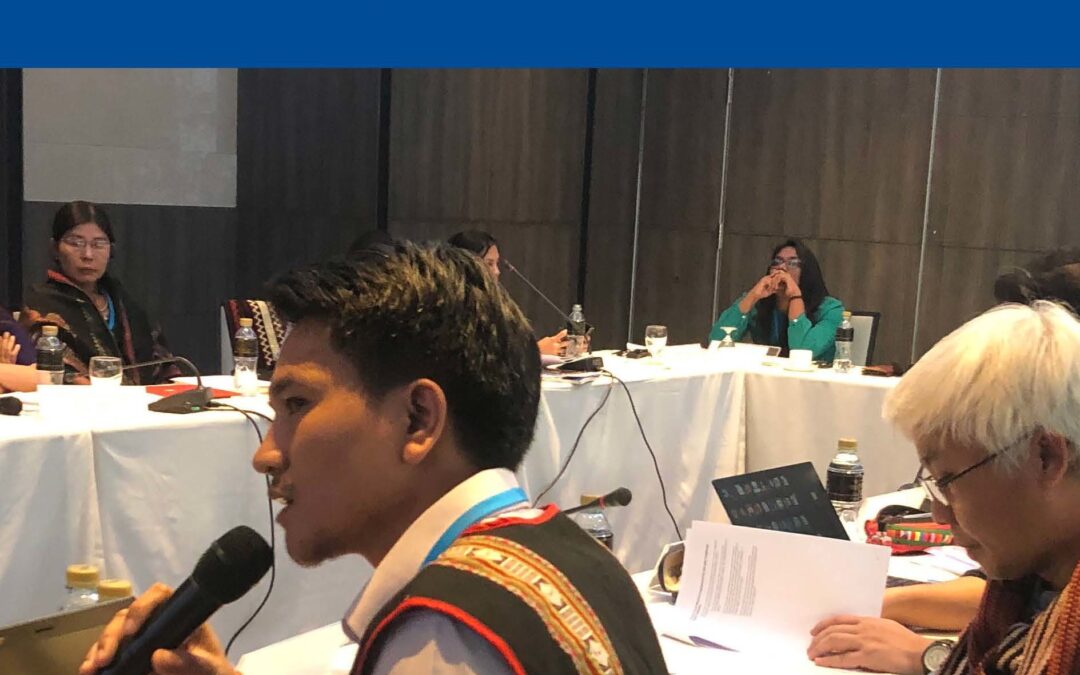
Jun 21, 2019 | News, Publications, Reports, Workshop reports
The ICJ has today published a report on indigenous and other traditional or customary justice systems in Asia.
The report is based on discussions at the 2018 Geneva Forum of Judges & Lawyers which was convened in Bangkok, Thailand, in December.
The Bangkok meeting brought together judges, lawyers, and other legal experts from around the Asia-Pacific region, from both formal State justice systems and indigenous and other traditional or customary systems.
Participants reaffirmed the potential for indigenous and other traditional or customary justice mechanisms to contribute to the realization of equal and effective access to justice, particularly for indigenous, rural, poor and other marginalised populations.
Participants stressed the importance of sustained consultations and engagement directly with indigenous justice systems, to encourage their development in harmony with international human rights standards and in coordination with more official or formal national legal institutions.
Participants also highlighted the opportunities and risks associated with similar forms of constructive engagement with other, non-indigenous, traditional or customary justice systems. The relevance of UN Sustainable Development Goal 16 was also highlighted.
Participants further agreed that States must at the same time ensure that formal systems are also made more accessible, both in practical and in cultural terms, to relevant communities.
The report urges that, in line with the UN Declaration on the Rights of Indigenous Peoples, constitutional or other legal provisions should recognize the role of indigenous justice systems, within an overall framework for protection and promotion of international human rights standards.
Indigenous peoples and States should jointly consider means for improved coordination and collaboration between indigenous and non-indigenous justice systems, with a view to seeing the different systems work in harmony to provide effective access to justice and protection of human rights for all people.
The report cautions however, that a similar approach may or may not be appropriate in relation to certain other traditional and customary justice systems not covered by the UN Declaration on Rights of Indigenous Peoples.
The report also outlines experiences from a number of countries around the region, both in terms of existing obstacles to equal access to justice, and the possibilities for constructive engagement.
It also identifies a number of legal and policy questions of continuing controversy, including on the relationship between indigenous and other traditional or customary justice systems, and the official State justice system, and how international human rights and rule of law standards should be applied.
The UN Special Rapporteur on the Rights of Indigenous Peoples, a key participant in the Bangkok meeting, has announced that her report to the Human Rights Council in September 2019 will focus on indigenous justice systems.
The interactive dialogue on her report will be an important opportunity for States and civil society to further exchange views on the best means of implementing the relevant provisions of the UN Declaration on the Rights of Indigenous Peoples in the diversity of contexts around the world.
The Geneva Forum global and regional consultations, the Special Rapporteur’s report and associated dialogue, and the ICJ’s own research, global experience and expertise, will provide a foundation for the development by the ICJ of further legal, policy and practical guidance to be published in 2020.
The report summarizing discussions at the 2018 Forum should be read in conjunction with the separately published and periodically updated Traditional and Customary Justice Systems: Selected International Sources, which compiles relevant treaty provisions, standards, conclusions and recommendations of UN and other expert bodies, as well as the Report of the 2017 Forum.
The Geneva Forum is an annual global meeting of senior judges, lawyers, prosecutors and other legal and United Nations experts, convened by the ICJ through its Geneva-based Centre for the Independence of Judges and Lawyers, with the support of the Canton and Republic of Geneva (Switzerland) and other partners.
Each year, participants and the ICJ discuss an issue relevant to the independence and role of judges, lawyers and prosecutors, with a view to developing and disseminating practical guidance for practitioners.
Contact
matt.pollard(a)icj.org
Universal-Trad Custom Justice GF 2018-Publications-Thematic reports-2019-ENG (full report in PDF)








